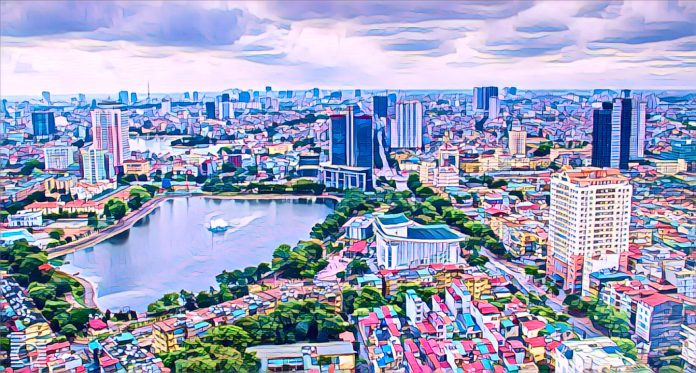KEY POINTS
- Experts describe Nigeria’s economy as dysfunctional, citing its inability to support the country’s 220 million population.
- Key issues include poor governance, high unemployment, inflation, and an overdependence on oil revenues.
- Calls for urgent reforms and economic diversification are growing as the nation grapples with stagnation.
Economics in Nigerian is in critical trouble as experts have described the country’s economy as dysfunctional and incapable of providing for the 220 million citizens.
However, the nation is facing persistent challenges such as high unemployment rate, elevated inflation levels, over-dependency on oil export, thus limiting its growth and readiness to support its people as the continent’s biggest economy according to GDP.
Economic experts opine that this system is unsustainable as far as the current population of the people of Nigeria is growing at a very fast rate. Currently, there are Millions of people in this nation living in absolute poverty, meaning that the economy has not solved basic issues like wealth distribution, employment generation and infrastructure enhancement.
These weaknesses have inhibited Nigeria from effectively competing on international emergent market and thus, providing reasonable living standards for its population.
Market oversight and regulatory policies as a cause of the collapse
Pervasive poor governance and weak policy formulation and implementation are the main causes of the economic decay in Nigeria. Years of political mismanagement and greed, as well as shortsightedness in terms of the economy have resulted in the nation, now misfiring whenever shock waves, such as oscillating oil prices, hit the nation.
Even though oil remains one of the primary sources of revenues in the country, the sector’s stagnation, and failure to diversify in other sectors such as agriculture, technology, manufacturing pull the country back in terms of development.
The failure of the government to enhance policies that create a diversified economy means that the country has many unemployed youths. The effects of inflation has compounded the situation, reducing ability of households to purchase goods and diversified poverty levels.
From Business Day, critics have made a stand that if nothing is done, the Nigerian economy fails to deliver on its systematic promises. Such changes stress structural reforms which focus on the progress of all the people, especially with reference to investments in the education and health sectors and infrastructure.
Finally, it is assumed that promoting an environment that will encourage the start-up of new ventures and growth of private enterprise is crucial to the development of sustainable economic growth.
The youth unemployment rate rises as global inflation challenge deepens the economic problems.
Tens of millions of Nigerian youth are now out of work, and overall joblessness remains extremely high.
There is inflation that is still ongoing and put pressure on the cost of living, meaning that families are struggling to put enough food on the table, to be able to afford to transport each other or be able to seek medical attention.
In recent years, inflation has ranged between 8% and 12%, has proven costly to consumer and businesses within the economy.
But this has put immense pressure on the economy, and people are dissatisfied with the government not solving such problems.
The social dynamics have also been stretched due to the enrichment of the societies’ minority while the majority of the population cannot enjoy our natural resources.
Intense current demand for economic reforms and diversification
Before the shed of the civil war in 1970, economics had always condemned Nigeria relying solely on the oil belt as this had exposed Nigeria’s economy to a lot of fluctuation from the international market.
The revenue bases being oil prices makes it hard for the Nigerian government to develop and maintain stability while seeking to invest or even focus on the areas that need development most.
Demands for the government to establish new economic strategies are increasing daily and the so-called stakeholders recommend investing in such sectors as agriculture, renewable energy and information technology.
Nigeria’s foray into such areas means that the country can shift from depending so much on oil exports as well as providing its increasing population with more employment opportunities.
There is also an indication that there are changes being called for in a bid to throw out ineffective and corrupt bureaucracy, which has for so long retarded the economic growth of the nation.
This means that if Nigeria can enhance governance and made its economy more convenient for foreign investors then it can experience positive growth in almost all the sectors other than oil.
Optimism for a better economic future
Nevertheless, it is expected that with proper reformation, Nigeria needs to transform its economic index. Policy analysts have been calling on the authorities to introduce strategies that would ensure economic stability and people’s welfare in the long run.
A shift of current approach towards funding education, employment opportunities, and construction may help to reveal latent potential and create the base for further development.
This development shows that the people of Nigeria are optimistic that through efficient leadership and sound relevant structures, the economic harshness will be tamed and the country’s economy put in a better stand to be able to meet its populace’s required variety and standard.



